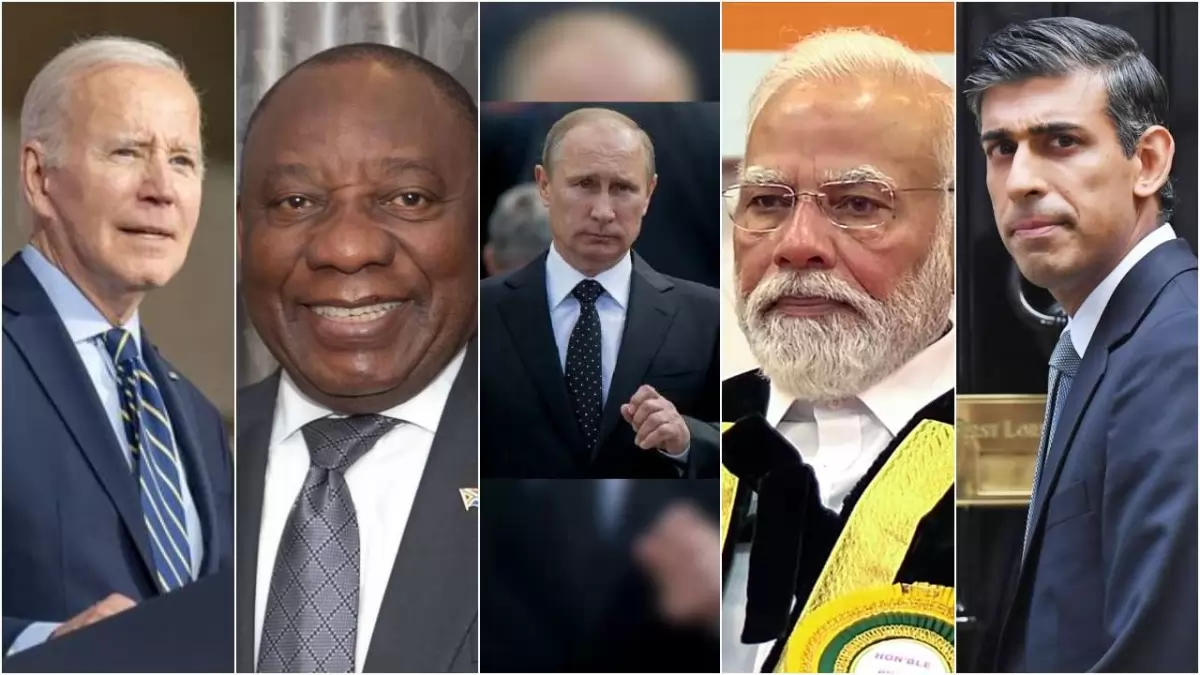
Elections 2024:: In the rapidly evolving landscape of global politics, elections are poised to play a pivotal role in shaping the economic trajectories of countries worldwide. As countries making up over 60 per cent of the world's economic output gear up for elections, market analysts are closely monitoring the potential impacts on various sectors. Here's an in-depth look at key elections around the globe, with a focus on market risks and potential implications.
Dates: March 10 (Portugal), June 9 (Belgium), June 6-9 (European Parliament), autumn/winter (Croatia), November (Romania), to be confirmed (Austria).
The rise of Eurosceptic far-right movements, exemplified by Geert Wilders' Freedom Party in the Netherlands, has injected uncertainty into European politics. Analysts are particularly eyeing Italy, whose stocks and bonds, top performers in 2023, might face challenges if Eurosceptic parties gain ground, potentially impacting European integration commitments. The EU's involvement in legislation and key decision-making, especially in supporting Ukraine and climate policies, is crucial for market stability.
Date: March 17
Vladimir Putin, with approval ratings exceeding 80 per cent, is set to secure another six years in power. The market risk lies in the potential insights Putin may reveal regarding the ongoing Ukraine conflict during the campaign. Western scrutiny and the possibility of asset seizures by countries like the United States and Japan add complexity to Russia's economic landscape.
Date: March 31
Post-President Erdogan's re-election, Turkey has seen a return to orthodox economics, attracting international investors. However, concerns linger over a weak lira and soaring inflation. Market stability will depend on Erdogan's commitment to economic orthodoxy, and any deviation might impact the country's financial landscape.
Date: April-May (to be confirmed)
Prime Minister Narendra Modi seeks a third term, with India attracting capital flows amid global uncertainties. Persistent inflation, the need for coalition-building, and potential shifts in fiscal policies pose market risks. Any deviation from the current economic path could affect India's fiscal deficit and influence domestic market borrowing.
Date: June 2
Mexico's election involves reshuffling the Congress and state elections. Incumbent Morena party's wide lead could lead to a balanced Congress, mitigating drastic constitutional changes. However, increased spending may impact Mexico's currency and government bonds.
Date: May-August 2024 (to be confirmed)
Economic challenges, power cuts, austerity measures, and corruption allegations may jeopardise the ANC's parliamentary majority. Pre-election moves, such as easing austerity, could impact debt and social spending, influencing currency stability and rate cuts.
Date: November 5
A potential Trump-Biden rematch brings concerns of social unrest and market volatility. The election's outcome could sway investor sentiment, affecting the US-China relationship, trade policies, and the performance of the dollar and stocks.
Date: Due by January 2025, expected by end-2024
The UK Labour party, led by Keir Starmer, aims to challenge the ruling Conservatives. Economic uncertainties and potential spending promises may unsettle government bonds, with implications for taxation, energy companies, and Brexit-related policies.
Date: 2024 (to be confirmed)
Incumbent Nicolas Maduro's advantage in the presidential race, coupled with potential sanctions, introduces volatility to Venezuelan stocks and bonds. The US lifting certain sanctions adds complexity to Venezuela's economic outlook.
As these elections unfold, the global market will navigate through a complex web of geopolitical shifts, economic policies, and regional dynamics, offering both challenges and opportunities for investors worldwide. Stay tuned for comprehensive coverage and analysis as these events shape the future economic landscape.





Copyright © 2025 Top Indian News
